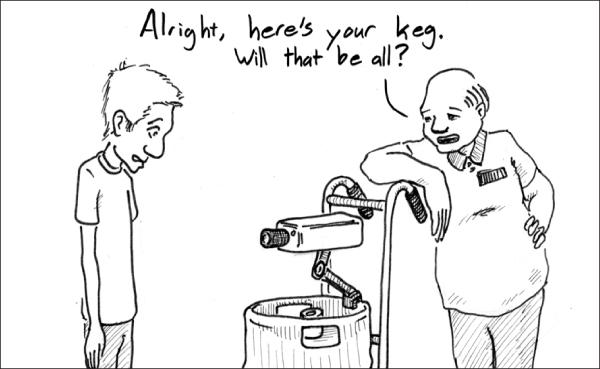Underage drinking is a major issue on every university campus. Michigan’s new keg tag law offers a potential solution to a serious problem: requiring buyers to register their keg purchase.
However, while the idea of requiring keg tags to hold buyers responsible has good intentions, the many flaws of the policy indicate it was not fully thought through.
Reading the keg registration declaration itself gives minimal information about the policy. Anyone who “removes the keg identification tag, allows the removal of the keg, and/or provides false information in the purchase of a beer keg” could face a misdemeanor punishable by a hefty fine, or as many as 93 days in jail.
This is an overly severe punishment, especially considering that due to keg condensation, the sticker could simply fall off if not placed on the keg properly.
There is too much room for interpretation, depending on individual situations, especially when jail time is involved.
For a policy that will be enforced beginning Nov. 1, the Michigan Liquor Control Commission has done little to notify affected businesses. There were no emails or letters sent; instead, they relied on media and social media to distribute the information.
The lack of information also effects consumers who have already purchased kegs legally. If empty kegs aren’t brought back for a deposit by Nov. 1, the deposit of $30 will be void.
The idea of requiring consumers to give up private information is a controversial issue to begin with. Restricting consumer freedom in Michigan’s unstable economic environment could be a worse idea yet.
But if Michigan thinks it’s a good idea to do so in the name of cutting underage drinking statistics, it would be nice if they had the foresight to make sure the law at least worked properly.


























